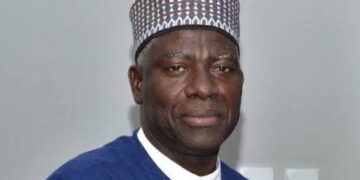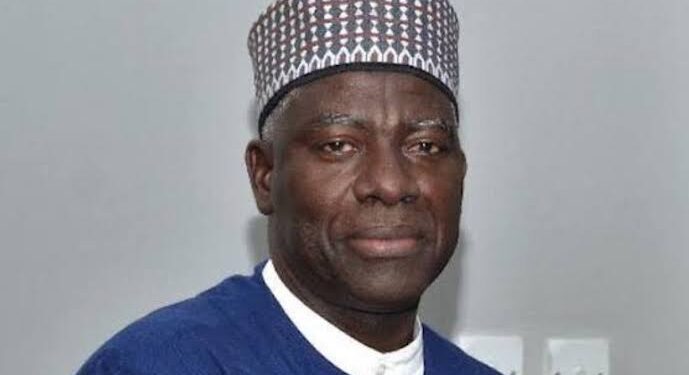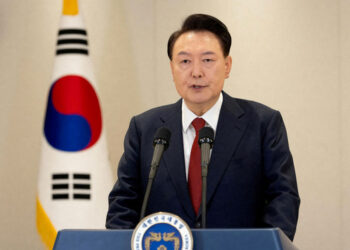By Kenneth Atavti
RECENTLY, the Department of State Services, DSS, warned against hate speeches, fake news and any act that is detrimental to the peace of the nation. It also sought partnership with the media to help combat crime and violence in the country.
The warning which is timely is to prevent crisis and anything untoward as election approaches.
Spokesperson of DSS, Dr. Peter Afunnaya, while addressing newsmen at its headquarters in Abuja, urged media personnel to set the right agenda by ensuring the dissemination of peaceful and positive information.
“We are engaging stakeholders to help shun violence as election approaches. We are engaging the media because you are the gate keepers and whatever you put out there is what the public consumes.
“The print media, broadcast, online platforms and bloggers are all tools for National building.
“Peace is very critical for the wellbeing of our nation, therefore let’s shun violence and ethnicity, let’s preach religious tolerance in the message we pass out” Afunnanya said.
The DSS spokesperson also urged Nigerians to stay responsible in ensuring the peace of the Nation is not jeopardized.
“Nigerians, Elections are here again let us shun violence, let us play the game according to the rules.
“Do not be a thug, say no to violence, let’s rise and defeat violence, crime and sabotage against the peace of our Nation. Nigeria is the only country we have, we must do everything to keep it united.
“We must avoid any act that promotes hate and disintegration. Say no to separatist movement, terrorism, fake news, hate speech, religious bigotry and any act that tends to divide us as a nation.
“Watch out for strange gatherings, suspicious movements. Restrict access to sensitive documents and data, the disclosure of which may damage National Security.
“Educate your staff and family particularly on measures to safeguard information and report security breaches. Apply relevant legal security guidelines to protect yourselves and your neighbours,” he further said.
The DSS spokesperson also said all suspicious movements and persons should be reported to the nearest security agencies.
He said all security information, should be passed through these numbers: 08132222105, 09153391309, 09088373514 or send a mail to [email protected]
What therefore constitutes hate speech? According to Ngozi Chisom Udoka, lecturer, faculty of law, Nnamdi Azikiwe University, Awka, Anambra State, hate speech “has been defined as speech that carries no meaning other than the expression of hatred for some group, such as a particular race, especially in circumstances in which communication is likely to provoke violence.”
She further stated that “hate speech has also been defined by the Committee of Ministers of the Council of Europe (1997) as ‘covering all forms of expression that spread, incite, promote or justify racial hatred, xenophobia, anti-semitism or other forms of hatred based on intolerance, including: intolerance expressed by aggressive nationalism and people of immigrant origin.’
“Hate speech is a speech that attacks, threatens, or insults a person or group on the basis of national origin, ethnicity, colour, religion, gender, sexual orientation or disability.
“Hate speech is a speech that vilifies, harasses, intimidates, or incites hatred toward an individual or group on the basis of a characteristic such as race, ethnicity, religion, gender or sexual orientation.
“Hate speech has also been defined as any kind of communication in speech, writing or behavior that attacks or uses pejorative or discriminatory language with reference to a person or a group on the basis of who they are, in other words, based on their religion, ethnicity, nationality, race, colour, descent, gender or other identity factor. Hate speech puts people down based on their race or ethnic origin, religion, gender, age, physical condition, disability or sexual orientation.
Notwithstanding, the 1999 Constitution of the Federal Republic of Nigeria (as amended) expressly provides for freedom of expression, particularly Section 39.
It states: “(1) Every person shall be entitled to freedom of expression, including freedom to hold opinions and to receive and impart ideas and information without interference
(2) Without prejudice to the generality of subsection (1) of this section, every person shall be entitled to own, establish and operate any medium for the dissemination of information, ideas and opinions…”
Under Article IX of the African Charter on Human and Peoples’ Right (AFCHPR), it is guaranteed that:
“(1) Every individual shall have the right to receive information
(2) Every individual shall have the right to express and disseminate his opinion within the law.”
Going further, Article 19 of the Universal Declaration on Human Rights (UDHR) provides that:
“Everyone has the right to freedom of opinion and expression; this right includes freedom to hold opinion without interference and to seek, receive and impart information, and ideas through any media and regardless of frontiers.”
Finally, Article 19 of the International Covenant on Civil and Political Rights (ICCPR) provides for the right to freedom of expression as follows: “1. Everyone shall have the right to hold opinions without interference.
2. Everyone shall have the right to freedom of expression; this right shall include freedom to seek, receive and impart information and ideas of all kinds, regardless of frontiers, either orally, in writing or print in the form of art or through any other medium of his choice.”
From the avalanche of the legal and constitutional backings on freedom of expression and the press, the importance and impact of this right cannot be overemphasized.
Ebun-Olu Adegboruwa, Senior Advocate of Nigeria, in a paper presented at the Webinar organised by Rule of Law and Development Foundation in 2021, said notwithstanding the vital role and value that freedom of expression plays in the stability of a democratic society, it is limited and not absolute.
“The Nigerian Constitution and all other International Instruments (to which she is a signatory) strictly provide for those circumstances where this extant right may be qualified, restricted and or derogated from. Under Section 39(3) of the 1999 CFRN, freedom of expression may be restricted by a law that is reasonably justifiable in a democratic society for the purpose of preventing the disclosure of information received in confidence, maintaining the authority and independence of courts or regulating telephony, wireless broadcasting, television.
“Also, by virtue of Section 45 (1) of the 1999 Constitution, the right to freedom of expression could be curtailed by any law that is reasonably justifiable in a democratic society (i) in the interest of defence, public safety, public order, public morality or public health; or (ii) for the purpose of protecting the rights and freedom of other persons,” he stated.
Atavti, is the Judiciary Editor of Nigerian pilot Newspaper in Abuja.




































